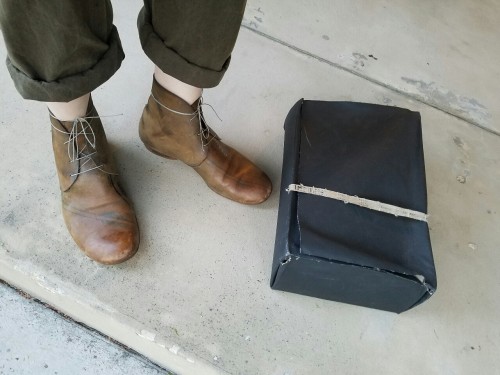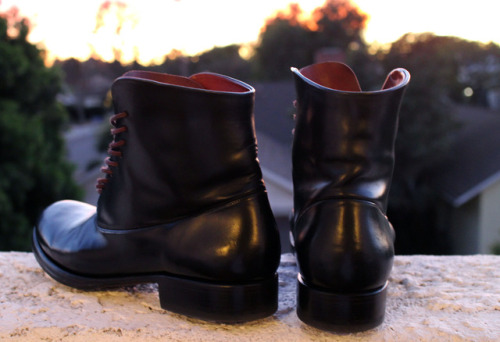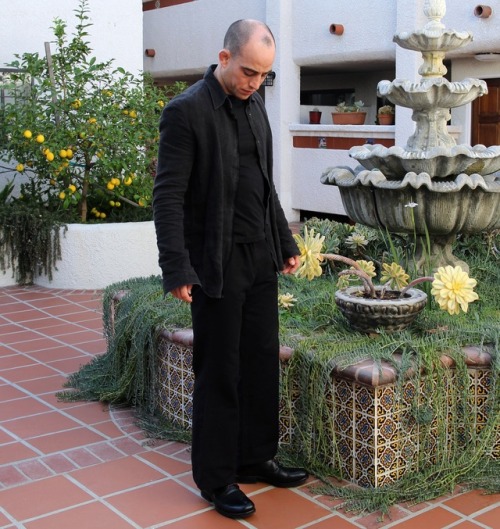#carpe diem
Thomas Jordan (1612(?)–1685)
LET us drink and be merry, dance, joke, and rejoice,
With claret and sherry, theorbo and voice!
The changeable world to our joy is unjust,
All treasure’s uncertain,
Then down with your dust!
In frolics dispose your pounds, shillings, and pence,
For we shall be nothing a hundred years hence.
We’ll sport and be free with Moll, Betty, and Dolly,
Have oysters and lobsters to cure melancholy:
Fish-dinners will make a man spring like a flea,
Dame Venus, love’s lady,
Was born of the sea:
With her and with Bacchus we’ll tickle the sense,
For we shall be past it a hundred years hence.
Your most beautiful bride who with garlands is crown’d
And kills with each glance as she treads on the ground,
Whose lightness and brightness doth shine in such splendour
That none but the stars
Are thought fit to attend her,
Though now she be pleasant and sweet to the sense,
Will be damnable mouldy a hundred years hence.
Then why should we turmoil in cares and in fears,
Turn all our tranquill’ty to sighs and to tears?
Let’s eat, drink, and play till the worms do corrupt us,
’Tis certain, Post mortem
Nulla voluptas.
For health, wealth and beauty, wit, learning and sense,
Must all come to nothing a hundred years hence.
“Life begins where fear ends.”— Osho
(viaminuty)
Carpe Diem

car·pe di·em
/ˌkärpā ˈdēˌem/
Exclamation
Used to urge someone to make the most of the present time and give little thought to the future.
The enjoyment of the pleasures of the moment without concern for the future.
The Origin of Carpe Diem
This Latin phrase, which literally means “pluck the day,” was used by the Roman poet Horace to express the idea that we should enjoy life while we can. His full injunction, “carpe diem quam minimum credula postero,” can be translated as “pluck the day, trusting as little as possible in the next one,” but carpe diem alone has come to be used as shorthand for this entire idea, which is more widely known as "seize the day.”
The 1989 movie Dead Poets Society introduced late-20th-century audiences to the phrase, but the sentiment has been expressed in many literatures, perhaps most famously in 16th- and 17th-century English poetry. One of the best-known examples (and an example featured prominently in Dead Poets Society) is in the first stanza of Robert Herrick’s 1648 “To the Virgins, to Make Much of Time”:
While the sentiment has long been expressed in English, the phrase carpe diem didn’t begin appearing in print in English until the early 19th century. Two centuries later, the phrase is found on mugs and T-shirts and in the names of various enterprises and organizations.
Carpe diem, a phrase that comes from the Roman poet Horace, means literally “Pluck the day”, though it’s usually translated as “Seize the day”. A free translation might be “Enjoy yourself while you have the chance”. For some people, Carpe diem serves as the closest thing to a philosophy of life as they’ll ever have.
Co znaczy: „spróbuję wsiąść"? Przecież „spróbować wsiąść" i „wsiąść" to ostatecznie jedno i to samo. Czy skręcisz w prawo na próbę, czy z pełnym przekonaniem, twój los będzie taki sam. Jedno i drugie jest nieodwołalne. Z chwilą, gdy spróbujesz, twój los zostaje przypieczętowany. W życiu nie robi się niczego „na próbę". “Spróbować coś zrobić” oznacza po prostu zrobienie tego.
Otogizōshi: Księga japońskich opowieści
Gather Ye Rosebuds While Ye May (1908), by J.W. Waterhouse
The title is drawn from a famous poem written in 1648 by Robert Herrick (see below for the complete version). It describes the need to live in the moment (carpe diem) because life is short and beauty is only temporary. This theme fits well with Waterhouse’s other works, but it should also be seen in the time when this was painted because in the same year there was a big demonstration in Manchester by the Women’s Social and Political Union to call for equal rights for women. There are no records about Waterhouse’s political opinions, but the association of female beauty with flowers was certainly something that the suffragettes did not approve of.
Waterhouse gave the same name to another picture that he painted one year later. It is however very different in composition, so it will be presented separately.
Apologies for the silent period, but I will try to resume this blog more frequently in the new year.

To the Virgins, to Make Much of Time (by R. Herrick, 1648)
Gather ye Rose-buds while ye may,
Old Time is still a-flying:
And this same flower that smiles today,
Tomorrow will be dying.
The glorious Lamp of Heaven, the Sun,
The higher he’s a getting;
The sooner will his Race be run,
And nearer he’s to Setting.
That Age is best, which is the first,
When Youth and Blood are warmer;
But being spent, the worse, and worst
Times, still succeed the former.
Then be not coy, but use your time;
And while ye may, go marry:
For having lost but once your prime,
You may forever tarry.
Post link
realmente mi mayor deseo ahora es este:




Breve idea del tiempo
Creemos que jugamos con el tiempo, pero es él quien juega y se entretiene con nosotros. El tiempo se sustrae a nuestro pensamiento, pensemos lo que pensemos nosotros de él.
No en vano el hombre ha poblado el cielo de dioses que controlan el tiempo, que lo van entregando y al mismo tiempo lo van hurtado, y mantienen guardado su enigma. El hombre ha poblado el cielo de dioses para poder entender su existencia en el tiempo.

Lo derrochamos, lo aprovechamos, intentamos detenerlo, soñamos con el instante en que seamos capaces de convertirlo en algo eterno, el dolor del tiempo es el deseo de la eternidad.
La pregunta por el tiempo es inevitablemente la pregunta por nosotros. Hablar del tiempo es hablar de nosotros. El don por excelencia del tiempo es la memoria.

Todo parece como si el tiempo presurosamente quisiera ir hacia el pasado y anhelamos el futuro por la sed insaciable de pasado que tenemos.
La morada por excelencia del tiempo somos nosotros. El tiempo pánico es el tiempo sin nosotros. Podría decirse que aquel que se pierde en el laberinto de sí mismo, está perdido en el tiempo. Aventurarse a vivir el presente tuerce el tiempo, lo dulcifica, así lentificamos su marcha, vivir en el tiempo es la pócima contra la desgracia.

La desgracia del tiempo es la obsesión de la explicación. La carencia de explicación no es una falta, no es una ausencia, es más bien una plenitud.
Hay cosas que nos piden que no hablemos de ellas, eventualmente el tiempo nos pide que no nos refiramos a él, que no lo convirtamos en algo medible, en algo cuantificable.
La tiranía del futuro hace presa de nosotros, de nuestros proyectos, de nuestros planes, de las ideas que tenemos del mundo. Nuestro frenesí nos ha llevado a una completa falta de medida. La naturaleza misma le pide al hombre que la libere del yugo del tiempo, que es el yugo de la multiplicación, de la productividad. Entre tanto, el hombre y su fiebre consumen todo lo que toca. Sumamos tiempo y no experimentamos nada, entonces lo restamos o lo robamos.

La belleza inagotable del tiempo es el instante. Nuestra vida está hecha de instantes separados unos de otros, de manera abismal. No percibimos esa separación extraordinaria entre los instantes porque necesitamos desesperadamente un tiempo continuo. Pero lo cierto es que el secreto del tiempo es el instante, su magnificencia está ahí. Cada instante es la plenitud de todo el tiempo, tanto que bastaría para que una vida se realizara plenamente con un solo instante.
Elias Canetti decía que a cada hombre le están destinados unos cuantos instantes y que la labor de toda una vida o de cada vida es encontrar los instantes de los que esa vida está hecha.

Vale la pena buscar y esperar, prepararse para encontrar, estudiar para hallar ese manojo de instantes que hacen que una vida sea completamente necesaria y que cada vida merezca el don extraordinario de la inmortalidad. La inmortalidad de cada vida está en los instantes que son indestructibles.

Sería extraordinario lograr vivir fuera de las divisiones habituales del tiempo, no conocer mes ni fecha, pero conocer otros hombres y vivir dentro de ellos. ¿Cómo hacerlo? Sustraerse al paso del tiempo, no registrarlo. A un hombre que logre vivir así, me lo imagino como un derrochador, el simple hecho de tener siempre tiempo, lo distinguiría de todos los demás, y tal vez su historia debería llamarse: el hombre que siempre tiene tiempo. Aunque, paradójicamente, el hombre que siempre tiene tiempo es también el hombre sin tiempo, porque ha renunciado a él. Quizá este hombre está más cerca del corazón secreto del reloj, del corazón secreto del tiempo. Tiene tiempo siempre, porque nunca tiene tiempo, porque vive fuera de las divisiones habituales del tiempo. Renuncia a la tiranía del tiempo que se mide, que se sucede.

El tiempo dicta sobre nosotros órdenes terribles. Parcela nuestras vidas. Deberíamos rebelarnos contra el reloj, el culpable de todas esas limitaciones, que establece distinciones completamente artificiales.

Cuando vivimos el tiempo como algo que pasa, lo sentimos como algo que pesa. Y el tiempo es liviano, grácil, fluido.
¡Qué reto sería! No dejarse contar el tiempo y no contarlo, para sentir y presentir la posibilidad de vivir con otros.
¡Qué giro extraordinario! Qué objeto tiene sobrevivir a los muertos si no es para vivir la vida en cada instante.

Es terrible ver como todo esta hecho bajo el influjo del reloj para el imperio de la muerte, aún las cosas más nobles, las virtudes, los valores. La fidelidad a la muerte da grima. El hombre se ha vuelto una criatura tremendamente cobarde.

La vida tomaría más sentido si lográramos zafarnos de la idea del tiempo sucesivo. Para que la vida vuelva a ser asombrosa y problemática y podamos acceder a la felicidad, derecho inalienable de todos.
Your purpose in life is not to love yourself but to love beingyourself.
If you goal is to love yourself, then your focus is directed inward toward yourself, and you end up constantly watching yourself from the outside, disconnected, trying to summon the “correct” feelings towards yourself or fashion yourself into something you can approve of.
If your goal is to love being yourself, then your focus is directed outward towards life, on living and making decisions based on what brings you pleasure and fulfillment.
Be the subject, not the object. It doesn’t matter what you think of yourself. You are experiencing life. Life is not experiencing you.
1. Begin by imagining your dreams have come true. What would your life look like? What would you be doing? How would you be making money? Where would you be living? What would you be doing in your spare time? What sorts of people would you be with?
2. Try reading some inspirational blogs, autobiographies or self help books. Often those help to uncover our passions, and the kind of person we really want to be.
3. Surround yourself with positive and motivated people - those who know what they want and are consciously going after it.
4. Take up a hobby that really interests you. There’s usually a reason that we’re drawn to certain things.
5. Ask other people who know you well, what they think would suit your personality. You’ll often be surprised by the kinds of things you learn.
6. Decide to ‘face your fears and do it anyway’. Don’t live a narrow life because you’re plagued by fear.
#okay pessism forthcoming i’m very sorry everyone#but this shit pisses me off#like NO it’s not 1/24 of MY day it’s 1/24 of A day#because statistically speaking#8/24 of the day is taken up by work most days#another 1/24 taken up by commute on average#another AT LEAST 1/24 taken for the most basic of life functions like cooking andor eating#more for showering if you shower every day but even if you don’t#you can account for that#and then another 8/24 for sleeping#so#in reality#one hour of the day#is in reality 1/6 of MY day if I’m LUCKY#if you add general life shit like chores#pet care#CHILD CARE if you have children which definitively takes up literally every hour you could possibly have#if you have to go grocery shopping or do general errands#etc#1/6 of the day is the BEST you can probably hope for as an average american adult#so yeah#self-maintenance self-care is important#but I’m fucking sick of the ‘it’s easy and takes up no time at all you have no excuse not to do it’ mentality#I mean same as all other toxic positivity bullshit on the internet#it’s not quite as malicious as real toxic positivity but it’s certainly willfully ignorant in frustrating ways#alright that’s the end of my rant#thank you good nightvia@wispiril
Hoo boy, I wasn’t going to respond but then I realized that so many of my posts and even reblogs get tagged or commented with calling me out for toxic positivity.
Here’s the thing. You’re completely right. We don’t all have the same 24 hours in a day. But we still have 24 hours.
I was already finding ways to slot time for self-maintenance in the super hectic 24-hour hypothetical you gave me. I have lived like that, I promise, and you know how I managed to give myself an hour when I couldn’t drop everything for an hour?
- I listened to podcasts or informative audio on YouTube or elsewhere while I cooked or cleaned.
- If I wasn’t capable of absorbing information at that time (ADHD), I turned on music instead and swayed while I worked. Even a little jig and swaying is better than no workout, plus it made the activities fun. I’ve started enjoying the chores I used to hate. I also used the music to visualize different things, which helped me practice my creative expression without ever lifting anything.
- On that ADHD note, when I’m feeling hyperactive and fidgety and can’t focus on anything because I’m unmedicated, I pace around my room aggressively. I don’t know the science behind it but it helps. It sorts out my thoughts, gets some steps in, and I am ready to do something productive afterward.
- When I took public transportation and carpooled to work or university, I read books on the commute. When I have to drive, I would listen to an audiobook.
- I would keep e-books on my phone to read if I was in the waiting room for some appointment or on standby for any reason and didn’t have anything else to do. I also read for ten minutes or so before bed at night.
- While I was cleaning up after dinner and getting ready for bed, I had a face mask on.
- I got my steps in and did minor weight lifting by going grocery shopping. I would flex my biceps as I lifted the heavy bags and made sure to squat properly if I was picking something off the ground.
- I am a writer and, yes, making time to write is easier said than done, but I would do all my planning and development while I was moving about my day. If I came up with something huge, I would jot it down in my notes app. By the time I did find time to write, I had entire concepts figured out and just needed to get them on paper. Oh, and for that, I started setting 15-minute sprints in the morning or before bed. Just 15 minutes. That is all.
- Since I had to cook anyway, I would try out new recipes that not only tested my skills in the kitchen, but exposed my taste buds to various cuisines, flavors, and textures, not to mention the nutritional diversity.
- I like to wear makeup when I go out, so I started paying attention to tutorials I stumbled across online and tried to incorporate an occasional eye or lip hack into my routine.
- I have arthritis, so I started waking up a bit earlier to do about 10 minutes of yoga on the mat by my bed.
- I put timers and restrictions on my phone to minimize the amount of time I spent on social media. You’d be surprised at how much time you waste scrolling through your phone.
- I lived in a place that had a lot of blackouts, so I started using that time to practice skills that didn’t require any electricity, like my art and tarot.
- I downloaded Duolingo and did 10 minutes of practice in my targeted language whenever I was able to slot that in, even if it was 10 minutes before midnight. As of writing this post, I have a 212-day streak. I watched movies and series in my target language while I washed the dishes.
- I don’t have kids or pets, but if I did, I would do all of the above while I handled that responsibility. I would plan activities and events that would not only benefit me but also them. Imagine a messy painting session that helps you try out a new hobby while testing your toddler’s motor skills. You could use this experience to teach them about the importance of cleaning up, which can be another bonding activity combined with a learning experience. I would also exercise myself and them by playing with them, which yes, is good for fitness, but it is also good for socializing for all parties involved.
These are things I have personally done or currently do. Based on my above-mentioned routine, I was working out, practicing a foreign language, eating well, learning new skills, taking care of myself, and so much more, without ever setting a timer for one hour. And when you added all of this time together, the time I took for self-maintenance was much longer than an hour.
Okay, you can’t set aside one hour in a day. No one is asking you to. But if you were to make minor adjustments to your preexisting routine, and expanded on them over time, you’d find that you’re dedicating more than an hour to your self-maintenance journey.
Online positivity is meant to be a motivator and possibly a loose template to help you get started, not a one-size-fits-all strategy that everyone is supposed to copy and paste. And it’s most certainly not color-coordinated outfits and household accessories. Obviously, your lifestyle and struggles will look different than mine. But if you have the means to access and respond to my posts on Tumblr dot com, that means that you have the means to create some form of change, no matter how small or infinitesimal it may seem.
Most critiques of online positivity seem to list 100 different reasons for why they can’t do better today than they did yesterday and why their life sucks so much. All I’m challenging you to do moving forward is find one way to do something better today.
It takes a lot of effort
to get what you want out of life.
When you take the “easy way out” and wait for your dreams to magically appear, you ultimately miss out on the huge amount of personal growth that comes from chasing a goal step-by-step and enjoyingtheprocess. Actively working toward the changes you want to make, will inevitably bring about other changes. It is like a ripple-like effect of changes & growth through every element of your life.
Now that I’ve had this realization, life is better than I ever could have imagined. It takes a little extra “umph” and a lot of exhausted nights, but it’s all worth it to live your dreams and watch previously unfathomable things happen before your eyes.
There’s just no way of knowing what’s out there or what’s in store for you. Carpe diem!















